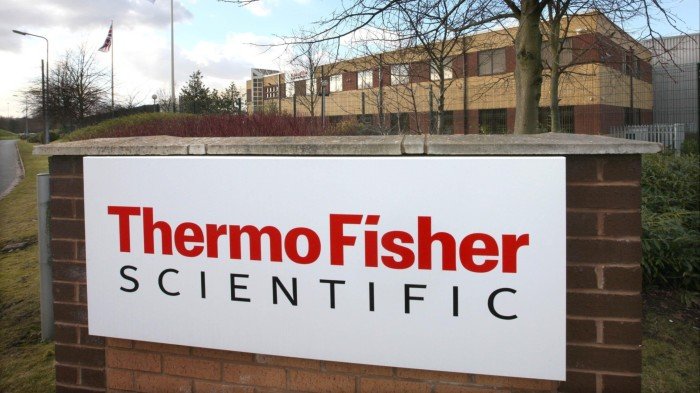Stay informed with free updates
Simply sign up to the Health sector myFT Digest — delivered directly to your inbox.
Thermo Fisher Scientific has put part of its diagnostics unit up for sale for around $4bn in the latest move by a life sciences company to attempt to offload some of its low-growth assets.
The company has approached private equity firms through advisers in recent weeks to test interest in a chunk of its diagnostics business, which includes its microbiology unit that makes infectious disease testing equipment, according to three people familiar with the matter.
The diagnostics units up for sale generate about $300mn in adjusted earnings and $1.4bn in sales a year, constituting roughly a third of Thermo Fisher’s wider speciality diagnostics division. Thermo Fisher is looking to sell the units for more than $4bn, two people added.
The sale process comes amid a volatile period for Thermo Fisher and the wider healthcare sector. Shares in Thermo Fisher have fallen 20 per cent this year, giving it a market value of $157bn at the close of trading on Thursday, as investors fret over the impact of President Donald Trump’s cuts to the National Institutes of Health on its sales.
Shares in rivals Danaher and Becton Dickinson are also down 11 per cent and 23 per cent respectively this year.
Thermo Fisher declined to comment. There are no guarantees that the auction process will lead to a deal and Thermo Fisher may decide to hold on to the asset, the people cautioned.
Thermo Fisher’s decision to offload some of its lower-growth diagnostic assets follows a similar decision by rival Becton. Earlier this year, Becton unveiled plans to separate its life sciences business, which includes a diagnostics segment. The Financial Times previously reported that Becton has held discussions with private equity groups about the sale of this unit. Becton could also opt to list the unit.
Thermo Fisher’s last major divestment was six years ago, when it sold its anatomical pathology business to Japanese healthcare group PHC Holdings Corporation for $1.1bn. Earlier this year, Thermo Fisher agreed to buy Solventum’s purification and filtration business for $4.1bn
Marc Casper, Thermo Fisher’s chief executive, has played down the impact of the NIH cuts, saying that Congress’s sway over the institutes’ budget may mean the reductions end up being smaller than initially expected.
“That should be a point of confidence,” said Casper at an investor conference last month.
Thermo Fisher has also joined a number of other healthcare companies in responding to calls from the Trump administration to boost its US manufacturing presence, pledging to spend an extra $2bn over the next four years.
